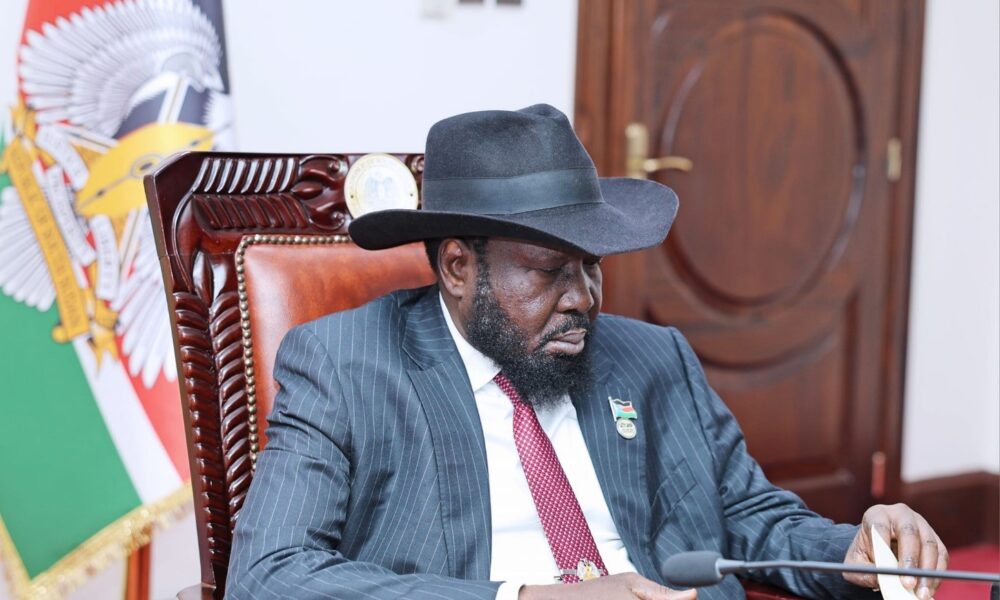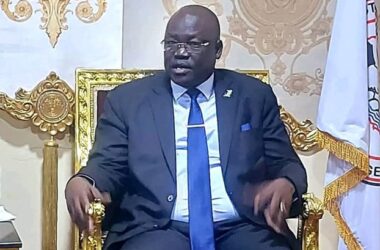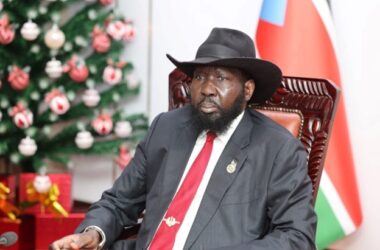By Mamer Abraham
Conflicts between different communities have persisted throughout history, in South Sudan. The intercommunal conflicts have often arisen from deep-rooted divisions, simmering tensions, and grievances that passed down from one generation to another.
They have torn apart communities, eroded social cohesion, and prolonged cycles of violence and hatred.
However, amid these challenges lies a glow of hope, a strong and effective justice system.
South Sudan has strong laws that can make criminals, and perpetrators of violence responsible citizens.
But what seems to have been lacking is the implementation of these laws, making conflict and crimes common practices among communities.
A critical analysis will land you on some of the reasons behind these conflicts including land ownership, and economic crisis, among other reasons.
Two days ago, many citizens were happy with President Salva Kiir Mayardit after convening a high-level meeting aimed at addressing the violence among the communities of Abyei, Twic, Apuk, and Marial Wau.
The head of state called for the restoration of peace among the communities and the deployment of security forces for people, goods, and services to move freely.
“The President condemned the violence in the strongest terms possible and directed the Chief Administrator of Abyei, Governors of Warrap and Western Bahr El Ghazal States to immediately de-escalate tensions and engage relevant stakeholders to restore peace between the concerned communities,” the statement issued by the presidential press unit read.
While addressing the media after the meeting, the Minister of Presidential Affairs, Bangasi Joseph Bagasoro, highlighted the unanimous call for an immediate end to hostilities and deployment of security forces to facilitate the free movement of people, goods, and services in the affected areas.
Bakosoro said the resolutions of the meeting would soon be released for public consumption adding that the president was committed to restoring peace and stability across the country.
Many citizens are dissatisfied with ongoing conflicts that not only reduce the number of citizens but also cause insecurity.
In their comments on the official Facebook Page of the Office of the President, Makieu Mangok Deng said peace is crucial for conducting elections in December 2024. He said the president has a competent team to iron out the differences among the conflicting communities once and for all.
“Mr President, you have a very capable team that have the capacity to put an end to the current communal violence in our state, they have to work collectively to bring lasting peace across the country. Elections are underway and absolute peace is needed. May God bless South Sudan,” Deng said.
Kat Joseph said the move was rightly placed as he questioned why leaders should watch while the citizens kill themselves across the country.
“What we need, it’s only peace…for how long will our people suffer while our top leaders are there watching their people killing themselves for no reason?” he said.
Some citizens argue that the peace initiative should be extended to other states like Jonglei and Unity State, where conflicts are common, but some remain skeptical about its long-term impact on peace and unity.
On January 6, 2024; the governor of Warrap State Kuol Muor Muor visited Turalei in Twic County and called upon the communities to stop the spirit of revenge attacks.
“[Mour] appealed to Twic Community to cease the ongoing conflict and roads ambushes in the main roads between Twic and Ngok Community of Abyei Special Administrative Area to allow the free movement of innocent civilians, goods, and Humanitarian aids,” partly reads a statement from his office.
He stated that the case of Aneet should be left in the hands of the governments of Warrap and Abyei to solve through guidance from the national government.
Muor said the two communities have widely intermarried and share norms and therefore they should resolve their differences through dialogue instead of taking the law into their own hands.
The decision came after the December 31, 2023 incident where the deputy chief administrator of Abyei Special Administrative Area Noon Deng Nyok was killed with his four bodyguards and his driver.
Bulis Koch Aguar, the information minister of the Abyei Special Administrative Area blamed the incident on the failure of UNISFA to protect the Abyei box.
Similar incidents happened earlier but a tangible solution has not been made so far to identify the perpetrators of violence and serve justice as the land issues wait for its final ruling from the government.
In May 2022, four suspected politicians were arrested having been accused of inciting communal violence, according to Sudan Tribune.
Dhieu Mathok, who was a member of the fact-finding committee that investigated Abyei-Twic conflict stated in his report that the committee was dismayed by the fact that senior government officials had poked their noses into the community affairs to stir violence.
“The committee notices with dismay that the government officials in Abyei Special Administrative Area and Twic County in Warap State are involved in the mobilization of youth that led to the resumption of the conflict instead of implementing the Cessation of Hostilities Agreement in their capacities as local government authorities,” he said in a statement.
The arrested officials included Mayot Kunit, Chol Pur Chol, Akuei Akoon and Ddeng Tong Goch; who were taken to Juba for further investigations as the committee warned citizens against involvement in the conflict.
In November 2022, Dr. Francis Madiing Deeng denied his involvement in fueling the conflict between Twic and Ngok Dinka communities. He said he worked tirelessly for peace and reconciliation to prevail between the two communities.
“The fact that question was raised to me is baffling because what have I ever done that will indicate I am fueling the conflict? Nothing, what I have said and I have written about is bringing the community together,” Mading said in an exclusive interview with No.1 Citizen.
“There is nothing I have said or done that indicates I am a party to the conflict. On the contrary, I called upon Bona Malual and myself to play leadership roles as elders of the community. we should bring our people together” he added.
Dr. Mading’s response came after the investigation committee revealed in their 94-page report that Bona Malual and Francis Mading fueled the conflict.
The report recommended the formation of the national border demarcation committee to solve conflicts related to internal boundaries.
It also called for the establishment of a special court to address the Aneet conflict and the establishment of security to control the security situation at the time and in the future.
The report also recommended that the traditional leaders should be empowered so that they can have the capacity to address the local issues.
In February 2023; President Salva Kiir Mayardit formed a committee to investigate the Aneet market shooting and the committee led by the vice president for service cluster Hussein Abdelbagi Akol handed in their report to the office of the president.
Even with all these efforts, more killings still surfaced this year yet none of the recommendations seems to have worked out up to date.
Many similar recommendations might have been made by preceding committees and another committee that will be formed or maybe already formed will bring some other recommendations as well, but this will be doubtful given the fact that the initial recommendations were not implemented.
This needs the government to take seriously the outcomes of investigations and apply recommendations. Where justice needs to be served, the law needs to take its cause. After all, whether a land belongs to who does not stop others who are not owners from living peacefully in it; so, it is crucial to maintain calm and patiently wait for the government to resolve matters.
The law is stronger than all. It ought not to be broken else one bears consequences of breaching it, especially in a democratic society which our country might not be too far from.
A strong justice system serves as the bedrock of any democratic society, providing a framework within which disputes can be resolved impartially and fairly.
It sets the stage for accountability, ensuring that those who perpetrate crimes or engage in acts of violence are held responsible for their actions, regardless of their background or affiliation.
By upholding the rule of law, a strong justice system cultivates a sense of trust and confidence among communities, fostering an environment where disputes can be resolved peacefully instead of resorting to vigilantism or retaliatory violence.
The conflict communities should understand that peace only pays but shedding a brother’s blood does not pay anyone incentives.




